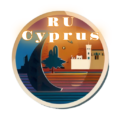The aroma of freshly brewed coffee fills the air as I settle into a bustling cafe in America. A familiar melody drifts from a nearby store – a traditional Cypriot song that instantly transports me back to the warmth of my childhood home. Memories of lively conversations filled with laughter and the rhythmic clinking of coffee cups come flooding back.
Moving from Cyprus to America has brought a wealth of new experiences, but it’s also instilled in me a deep appreciation for my native language and culture. Cypriot Greek, with its unique dialect and colorful expressions, holds a special place in my heart. Today, I want to share this passion with you – the curious traveler yearning to delve deeper into the heart of Cyprus.
While English is widely spoken in tourist areas, learning a few key Cypriot Greek phrases can truly enhance your experience. Imagine yourself navigating a bustling marketplace, ordering a delicious local dish, or simply striking up a conversation with a friendly local – all with the confidence of using a few basic Greek phrases. These interactions, no matter how brief, create a deeper connection with the island’s culture and open doors to a more authentic Cypriot experience.
So, pack your bags, a thirst for adventure, and get ready to learn a few essential Cypriot Greek phrases! Let’s begin our journey by mastering the art of greetings, explore useful everyday expressions, delve into the world of dining vocabulary, and discover some Cypriot-specific phrases that will make you sound like a local in no time.

Breaking the Ice: Essential Greetings
Our adventure starts with the basics – greetings! The most common way to say hello in Cypriot Greek is “Γεια σας” (Yia sas), pronounced like “yah sah.” This is a formal greeting suitable for anyone you meet for the first time, at a shop, or in a more official setting. For a more informal hello among friends or younger people, use “Γεια σου” (Yia sou), pronounced like “yah soo.”
In Cypriot Greek, there’s a distinction between “thou” and “you.” “Σας” (sas) is the plural form of “you” used in formal situations or when addressing someone older than you. “Σου” (sou) is the informal “you” used with friends, family, or anyone younger than you. Don’t worry too much about getting this perfect – most Cypriots will appreciate your effort and understand the context of your greeting.
Beyond “hello,” you’ll want to know how to say good morning, good evening, and good night. “Καλημέρα” (Kalimera), pronounced like “kahlee-mehr-ah,” is a cheerful “good morning” used until around noon. “Καλησπέρα” (Kalispera), pronounced like “kahlee-sper-ah,” is your go-to greeting from afternoon onwards. And to wish someone a peaceful night’s sleep, use “Καλη νύχτα” (Kali nichta), pronounced like “kahlee nich-tah.”
Responding to greetings is equally important. When someone greets you with “Γεια σας” (Yia sas), a simple “Και σε σας” (Kai se sas), pronounced like “keigh se sahss,” is the polite reply. For a more informal response to “Γεια σου” (Yia sou), use “Και σ jou” (Kai sou), pronounced like “keigh soo.”
Great! Now you can confidently greet anyone you meet in Cyprus, setting the stage for a positive and friendly interaction. Let’s move on to learn some useful everyday expressions that will come in handy throughout your trip.
**Making Connections: Useful Everyday Expressions**
Imagine yourself navigating a bustling marketplace in Cyprus, searching for that perfect souvenir. Suddenly, you bump into a friendly vendor. Being able to express yourself with a few basic phrases can make all the difference in creating a positive interaction.
Let’s start with the magic words – “Παρακαλώ” (Parakalo), pronounced like “pah-rah-kah-loh.” This versatile phrase can be used for “please,” “you’re welcome,” or even “excuse me” depending on the context. It’s a cornerstone of Cypriot courtesy, so be sure to use it often!
Another essential phrase is “Ευχαριστώ” (Efcharisto), pronounced like “ef-khah-risto,” meaning “thank you.” A sincere “Efcharisto” goes a long way in showing your appreciation for good service or a friendly gesture.
Cypriots are known for their warm hospitality, so you might hear “Συγνώμη” (Sygnomi), pronounced like “seeg-noh-mee,” often. This translates to “excuse me” or “sorry,” and can be used to politely get someone’s attention or apologize for any inconvenience.
However, there’s a slight cultural twist when it comes to nodding. In America, a head nod signifies “yes,” while in Cyprus, a gentle head tilt down means “yes” and a head tilt up signifies “no.” Being aware of this can avoid any confusion during your conversations.
Now that you’ve mastered basic courtesy phrases, let’s explore some ways to make conversation. “Καλά είμαι” (Kala ime), pronounced like “kah-lah ee-meh,” is a simple yet useful way to say “I’m good” in response to someone asking “Πώς είσαι?” (Pos ise?), pronounced like “pos ee-seh?” which means “How are you?”
Meeting someone new? A friendly “Χαίρομαι” (Chairome), pronounced like “kheh-roh-meh,” translates to “nice to meet you” and is a great way to break the ice. And when it’s time to say goodbye to a friend, use “Άντε γεια” (Ante ya), pronounced like “ahn-teh yah.”
Learning a few birthday phrases can also come in handy. If you encounter a birthday celebration, you can wish someone a happy birthday with “Χρόνια πολλά” (Chronia polla), pronounced like “khroh-nee-ah poh-lah.” This phrase can also be used for name days, which are important celebrations in Cyprus.
By incorporating these essential expressions into your vocabulary, you’ll be well on your way to having meaningful interactions with the Cypriot people. Next, let’s delve into the world of dining vocabulary, equipping you to navigate restaurants and cafes with confidence!
Dining Delights: Essential Food & Restaurant Phrases
The aroma of sizzling souvlaki and freshly baked bread fills the air as you wander through a charming Cypriot village. Your stomach starts to grumble, and you find yourself drawn to a traditional taverna. Knowing a few essential food and restaurant phrases can make ordering a delicious meal a breeze.

Let’s start with the magic words for placing your order. “Θα ήθελα…” (Tha ithela…), pronounced like “thah ee-theh-lah…” is a great way to begin, followed by the name of the dish you desire. For example, “Θα ήθελα ένα σουβλάκι χοιρινό” (Tha ithela ena souvlaki choirino), pronounced like “thah ee-theh-lah eh-nah soov-lah-kee khee-ree-noh” translates to “I would like a pork souvlaki.”
Knowing basic numbers can also be helpful when ordering. Here are the essentials (pronounced similarly to English): “Ένα” (Ena) – one, “Δύο” (Dyo) – two, “Τρία” (Tria) – three, “Τέσσερα” (Tessera) – four, “Πέντε” (Pente) – five, “Έξι” (Exi) – six, “Εφτά” (Efta) – seven, “Οκτώ” (Okto) – eight, “Έννια” (Ennia) – nine, “Δέκα” (Deka) – ten.
Finally, the inevitable moment arrives – requesting the check. A simple “Το λογαριασμό, παρακαλώ” (To logariasmo, parakalo), pronounced like “toh loh-gah-ree-ahz-moh, pah-rah-kah-loh” will do the trick. This translates to “The check, please.”
Beyond ordering, familiarizing yourself with some common Cypriot dishes can further enhance your dining experience. “Σουβλάκι” (Souvlaki), skewered and grilled meat, is a Cypriot staple. “Μουσακάς” (Moussaka), a layered eggplant dish with ground meat and béchamel sauce, is another must-try. And of course, “Χαλλούμι” (Halloumi), a unique brined cheese that can be enjoyed grilled, fried, or even raw in salads, is a Cypriot delight.
By knowing how to order, ask for the check, and recognize some local specialties, you’ll be well-equipped to navigate Cypriot restaurants and cafes with confidence. The next section explores some Cypriot-specific phrases that will make you sound like a local in no time!
Embrace the Adventure: The Power of Language Learning
Learning a few essential Cypriot Greek phrases might seem like a small step, but it can unlock a world of possibilities on your trip. Imagine the look of surprise and delight on a local shopkeeper’s face when you greet them with a warm “Γεια σας” (Yia sas).
Think about the camaraderie you’ll build with fellow diners at a taverna as you share a laugh and an “Ώπα” (Opa) over a delicious meal. Envision the meaningful conversations you might have with Cypriot people, where a simple “Καλά είμαι” (Kala ime) opens the door to a deeper understanding of their culture and way of life.
Language is a bridge, and even a few key phrases can build a strong foundation for connection. Beyond the practical benefits, learning Cypriot Greek demonstrates respect and appreciation for the local culture. It shows that you’re not just a tourist passing through, but a curious traveler seeking a genuine experience.
This article is just a starting point. There’s a whole world of Cypriot Greek waiting to be explored! Here are some ways to continue your language learning journey:
- Mobile apps: Several user-friendly apps like Duolingo or Memrise offer gamified language learning experiences, making it fun and convenient to learn essential phrases on the go.
- Online courses: Numerous online platforms offer structured courses designed for beginners. Invest in a short course to solidify your understanding of basic grammar and pronunciation.
- Phrasebooks: Pack a pocket-sized Cypriot Greek phrasebook for quick reference during your travels.
- Immerse yourself: Don’t be afraid to practice what you learn! Strike up conversations with locals, listen to Cypriot music, or watch Cypriot movies with subtitles. The more you immerse yourself in the language, the more comfortable you’ll become.
By embracing the adventure of language learning, you’ll not only enhance your Cypriot experience but also gain a newfound appreciation for the beauty and richness of the Cypriot culture. So, put your newfound Cypriot Greek phrases to the test, and get ready to discover the magic that awaits in the heart of Cyprus!

